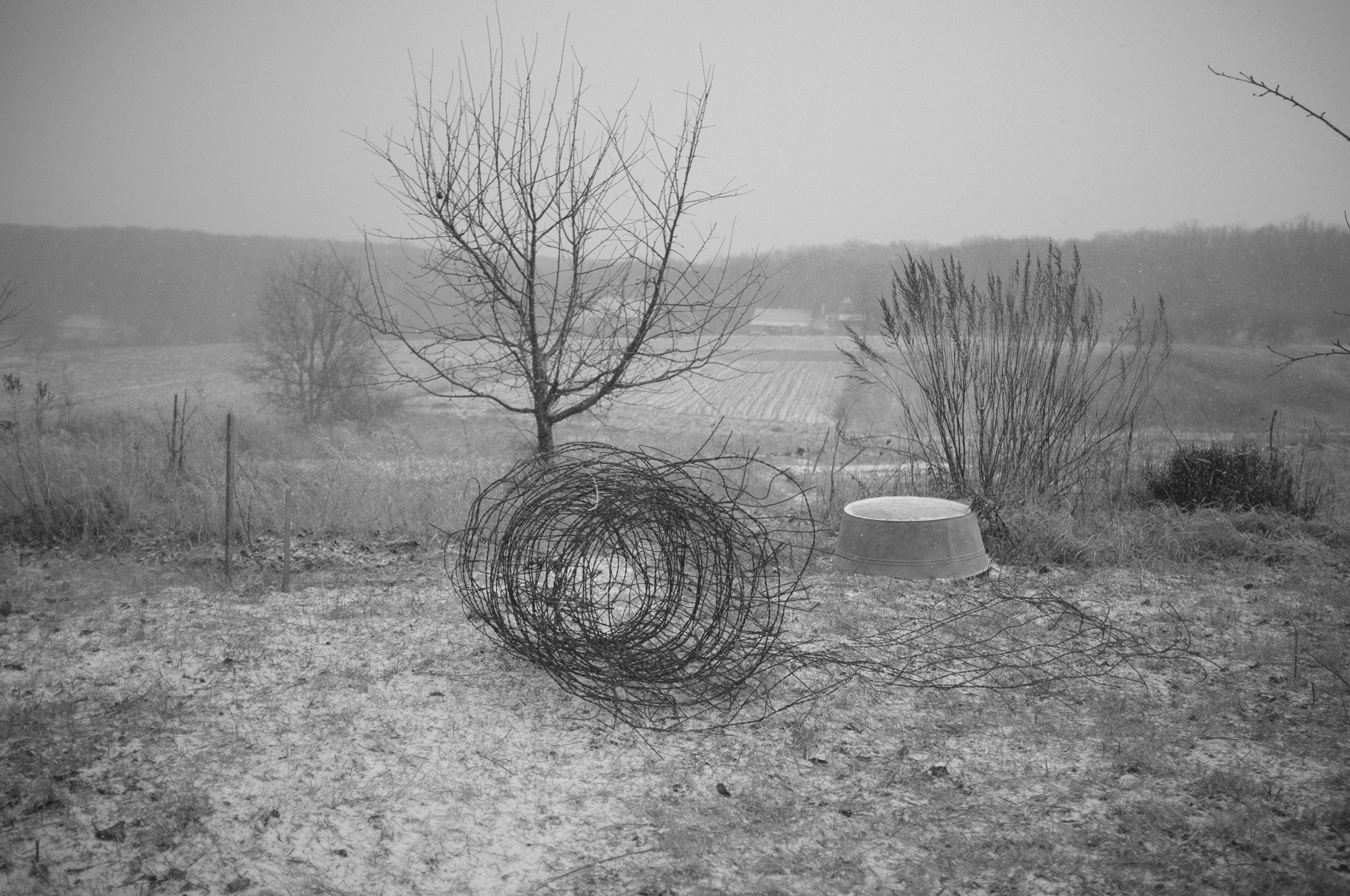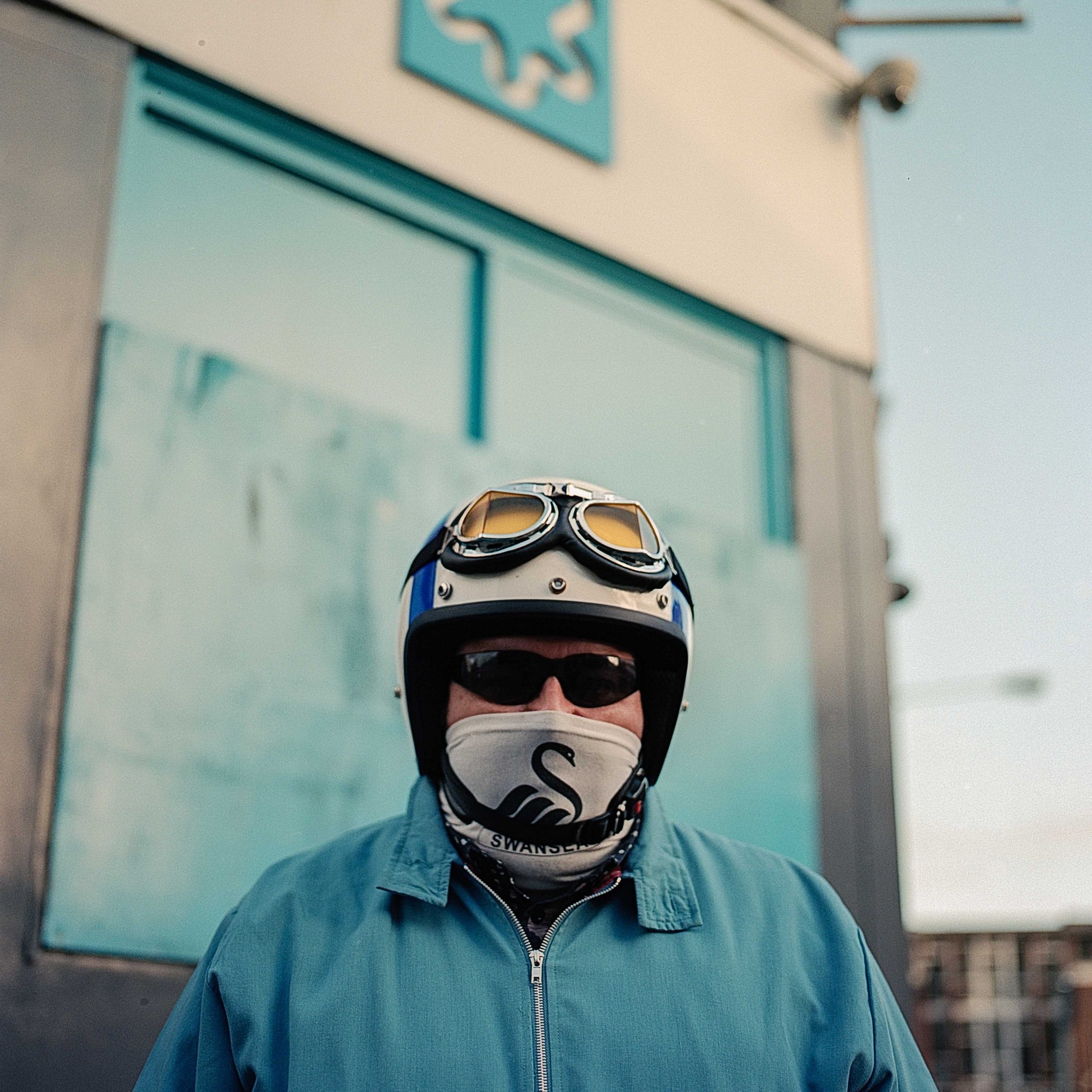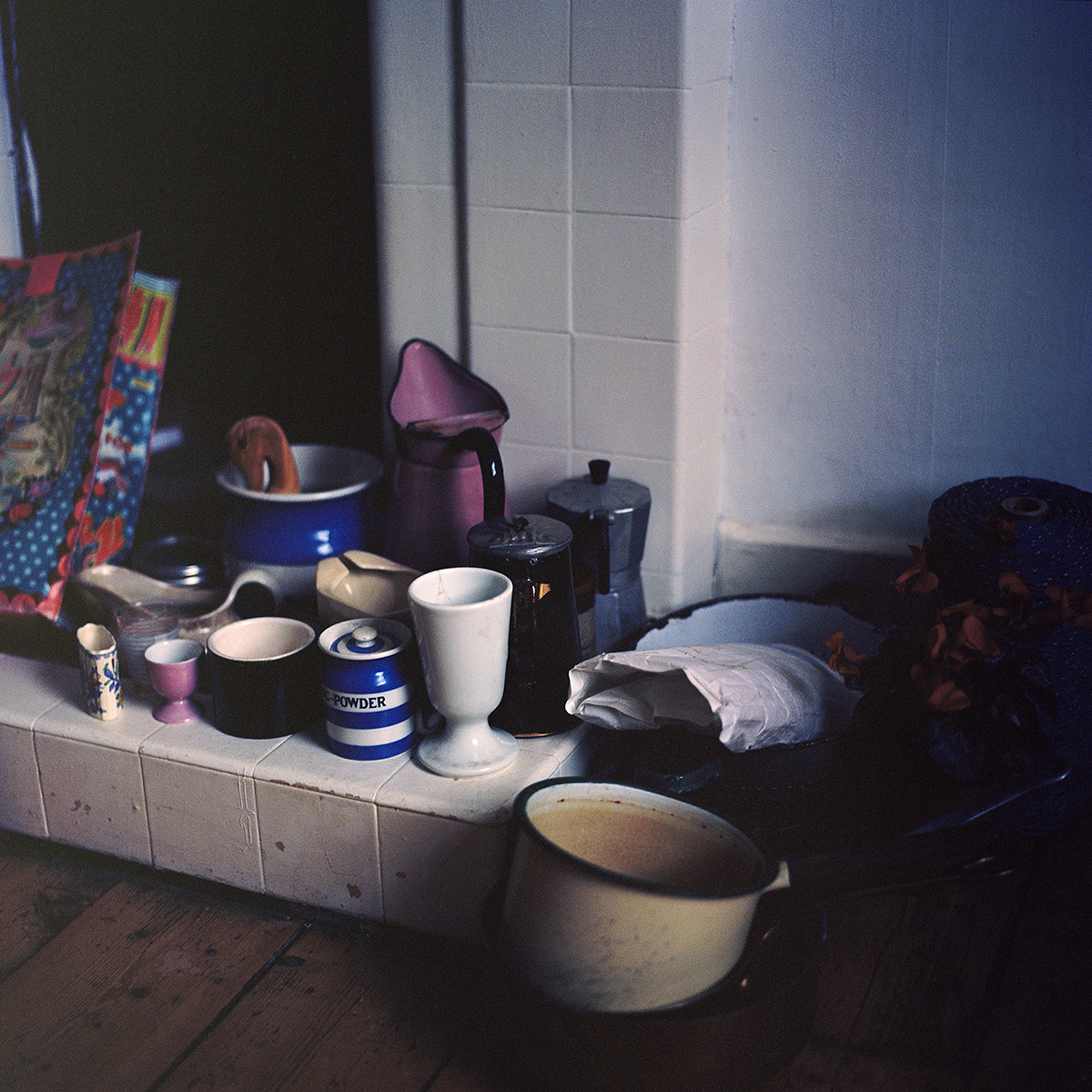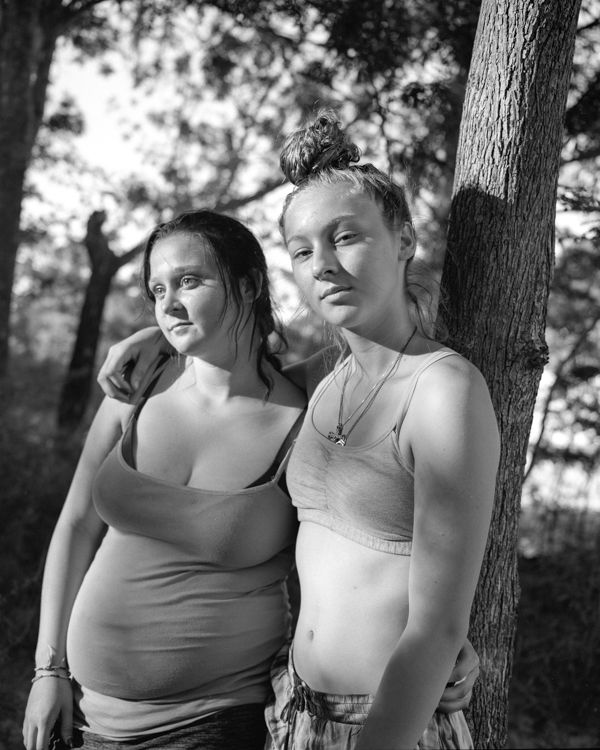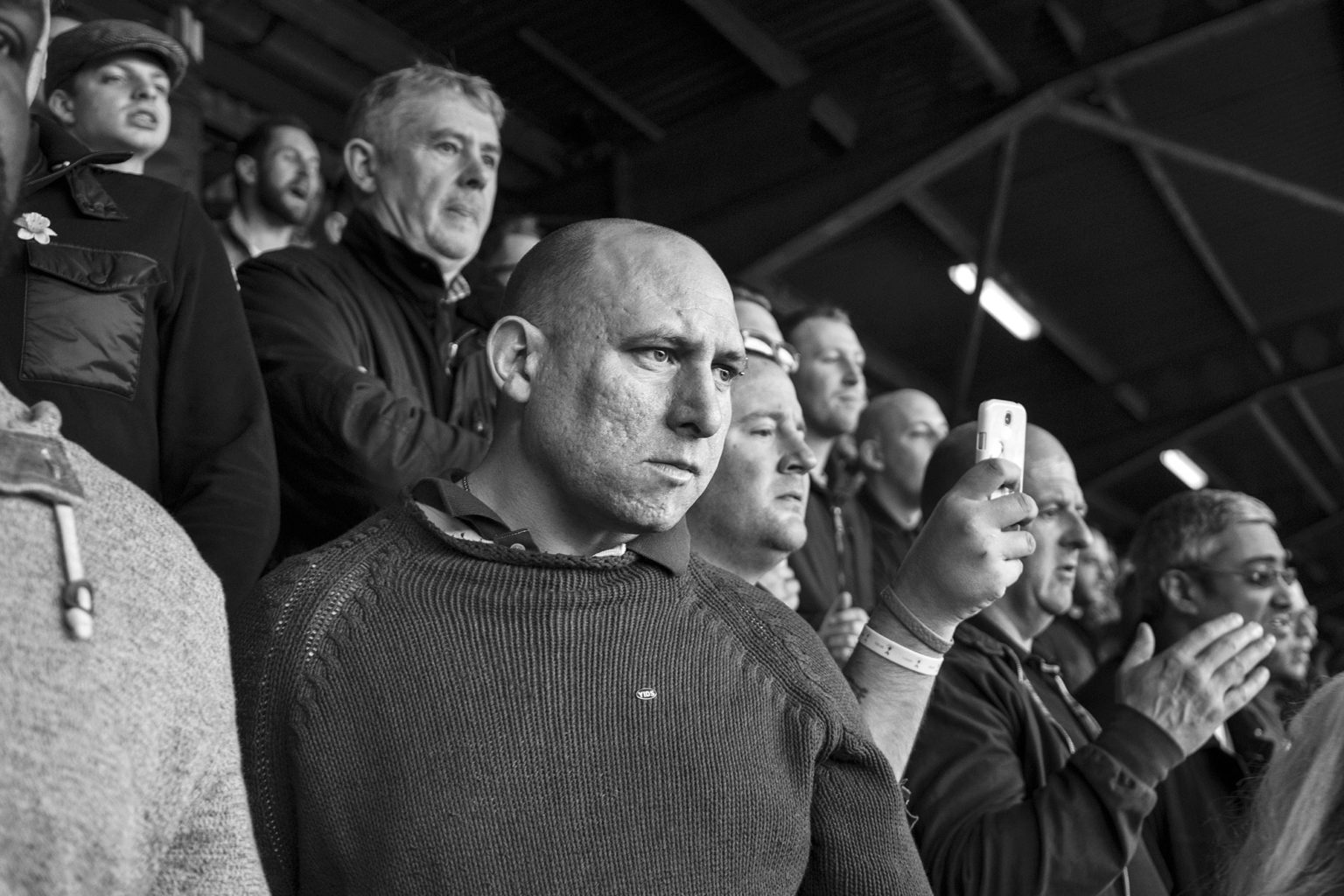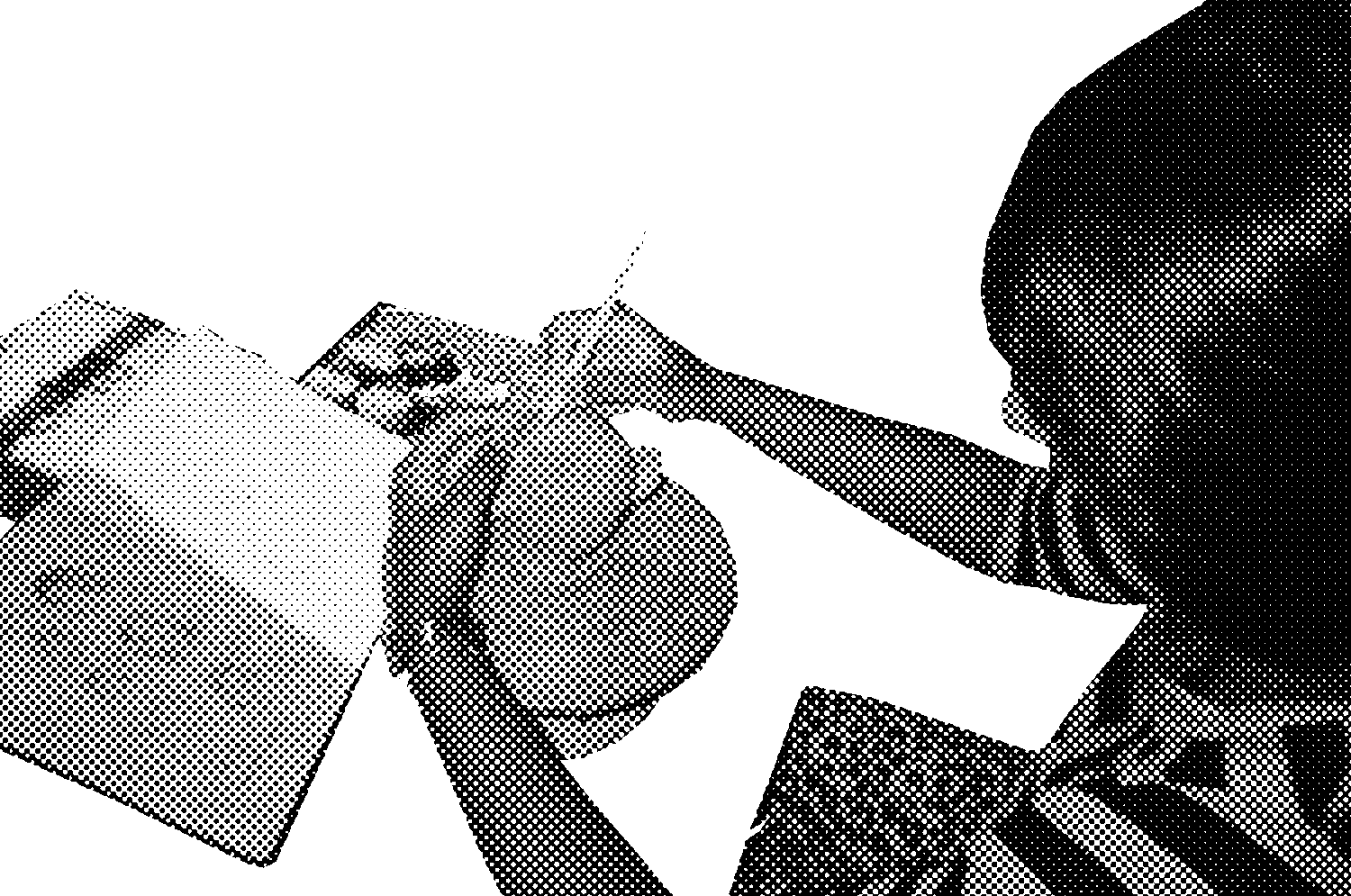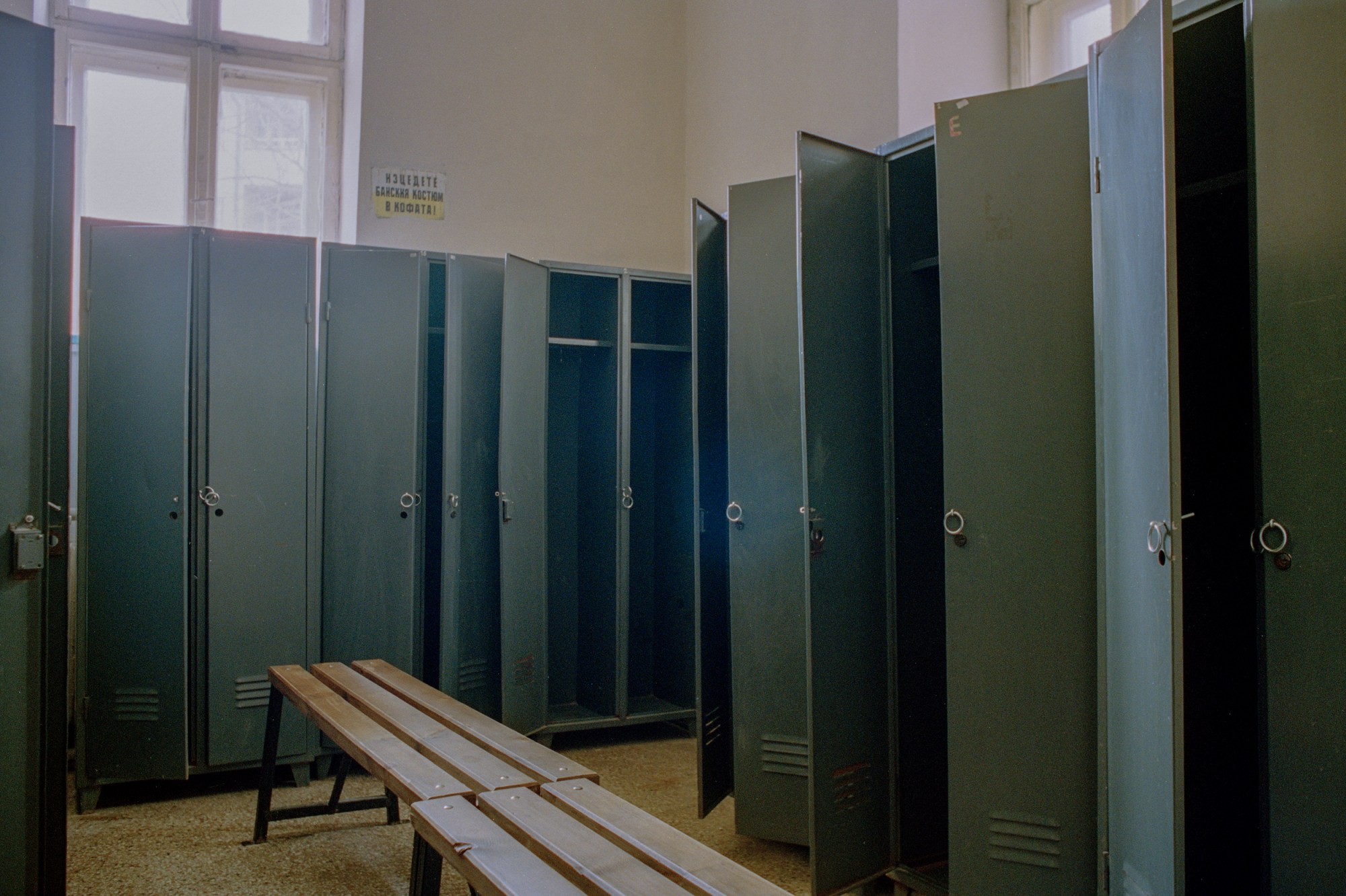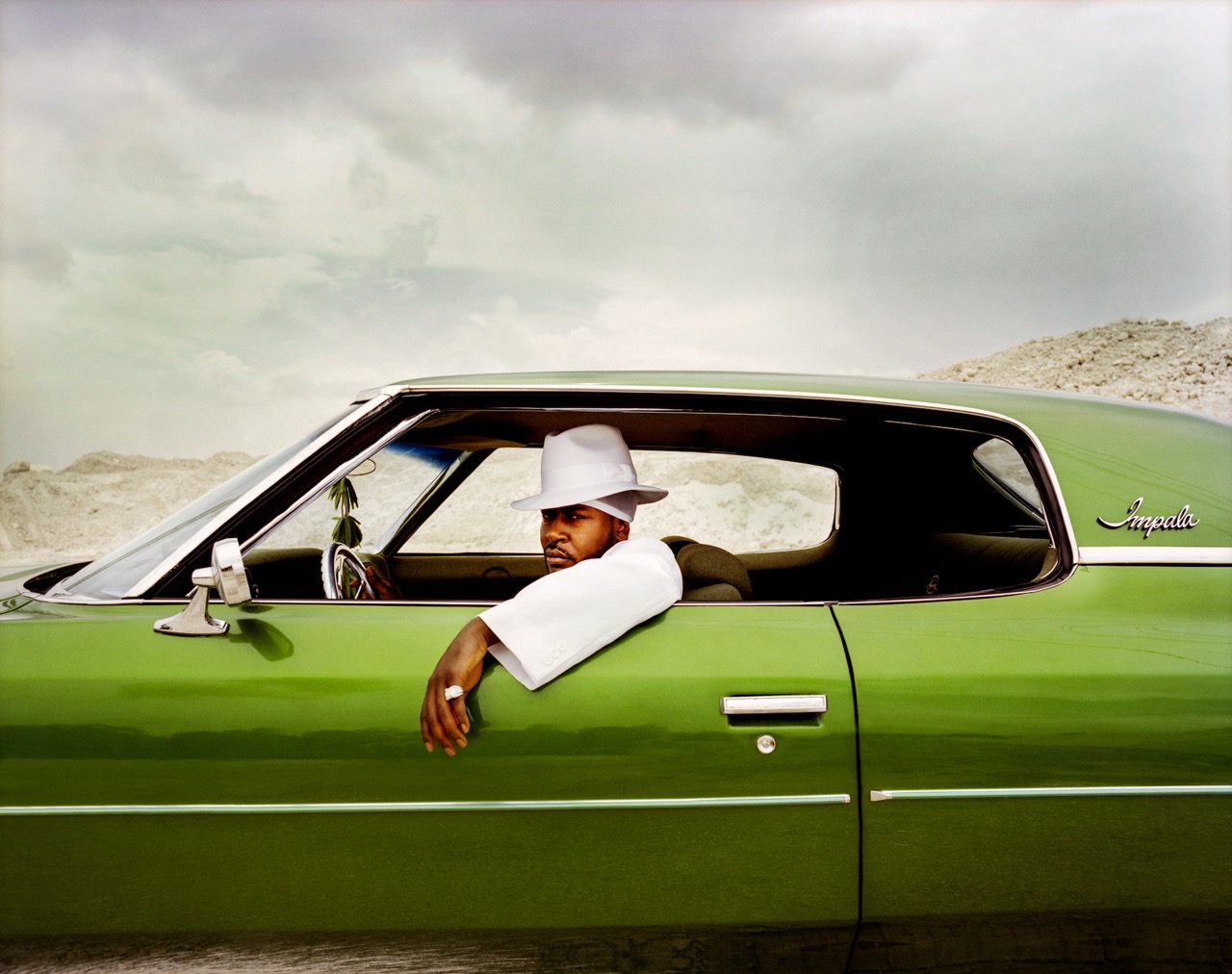We are witnessing a war in Europe that has been raging for over 60 days. The ongoing Russian escalation has altered the history of the region and the world has witnessed the full and harrowing lengths Vladimir Putin and his military forces are willing to go to in Ukraine to secure a victory for the Russian Federation. Ukraine was, and remains, beyond the protection of Nato’s Article 5 and this has left the proud country fighting against a superior military with international allies choosing to only provide arms to repel the invasion. The Russian invasion and resulting destruction of various large and smaller settlements around the country have led to 5.2 million Ukrainians fleeing the country (according to UNHCR data). This war has resulted in an ongoing humanitarian crisis in Europe on an unimaginable scale.
As a result of several trips to Ukraine I have built up friendships with Ukrainians of a similar age who are currently still in the country amidst the Russian invasion. My communication with them has been an important and reliable source of information about the current situation. The information we have been able to access about the Russian invasion of Ukraine from various media platforms uses a model that seeks to develop and push forward the narrative of this conflict for audiences. This approach/format can fail to truly express the phycological damage and dramatic changes to the everyday lives of innocent people surviving within catastrophes such as war and the aftermath of terrorism.
For the last two months corporate social media platforms including Facebook, TikTok, Instagram, and Twitter have been full of dramatic photos and videos of shootings, explosions, and destroyed Russian tanks and buildings. Social medias role in this conflict has changed our understanding of modern warfare and we have seen Ukrainians use of social media to stir resistance and gain support as a weapon or sorts in it’s own way. The internet has also allowed interaction between Ukrainians and people across the globe. Photos and videos of the war’s horrors have been spread quickly, searing into the global public consciousness and providing powerful ammunition in the information battle. The Ukrainians in both a civilian and military capacity have been providing personal accounts which have been a truthful insight into the current situation. One of these Ukrainians who have chosen to remain in the country during this time is a photographer named Roma Moskalenko. Roma is a Kyivite photographer whom I have known for over ten years and has remained in Ukraine throughout the Russian Invasion. Roma's perception and opinions can offer us an individual perspective during this dark and transformative chapter of the country. I wanted to conduct and share an interview with Roma whilst him and his family have been surviving the Russian invasion within the Kyiv region. I hope Roma’s experiences and photography can provide context and a personal perspective of the harrowing situation from someone trapped in the middle of the conflict. Our discussion can provide a real insight into this war whilst there is no clear indication of peace between the two countries.

TS: Please introduce yourself, where you are based and how do you work within the photo industry.
RM: My name is Roma Moskalenko. I am a photographer. I was born and live in Kyiv, Ukraine.
TS: Can you briefly explain your experience over the last 60 days since the Russian Invasion of Ukraine began? Where have you been located and how have you been staying safe?
RM: The invasion caught us in Kyiv. At 5:20 am my girlfriend got a call from her mother who lives in the suburbs of Kyiv. She said she had read on the news that Russia had attacked Ukraine and explosions were heard in Kyiv. She said she had read on the news that russia had attacked Ukraine and explosions were heard in Kyiv. But as soon as she hung up, we also began to read the news and I heard sounds, pretty similar to pops, somewhere outside the window. We started texting our friends and calling families to make sure they were ok and discuss what to do next. At the same time, we began to collect our belongings, some of which we packed before the attack, but hoped that we would not need them. The most difficult thing for me was to cope with panic and fear. We couldn't figure out if there was still an active rocket attack on Kyiv, as one of our friends had said that a rocket had hit an abandoned house near her apartment on the outskirts of the city. We packed our whole life in 3 backpacks and decided to go to Brovary, because our families were there at that time. (Brovary is a smaller satellite city) On the street, for the first time, we heard the siren roar throughout the city. At that time, we had no idea how common it would become. We hurried to the left bank of Kyiv to pick up my grandmother and my brother's cat who lives with her. We drove through traffic jams and car accidents - just like us, people did not understand what to do and how to escape. It turns out that my grandma was sleeping until we called, so she did not know that the war had begun. On the morning of February 24, it was hit by a rocket attack, killing 5 or 6 people. When we saw the collapsed buildings and smoke everywhere, we finally came to terms with reality, came to terms with the fact that this was not a dream and certainly not some kind of mistake.
TS: Can you explain how you felt after hearing about the first waves of military attacks from the Russian Invasion and what was your original reaction?
RM: When I saw what was happening, the first reaction was anger and fear for loved ones. But the most important thing I tried to convince myself was to stay focused, to make decisions with a cold mind. But I can't say that it always worked. At such a moment, all feelings overwhelm you, the adrenaline rush helps you make the right decisions, or at least makes you feel that they are right. We spent the first day on our phones reading the news and trying to understand the new world in which we will have to live in.
TS: In recent months Putin had amassed over 100,000 Russian troops along the borders with Ukraine and proceeded to lie to the international community about his motives for doing this. Did you see through the lies and propaganda before the first wave of attacks and already expect this invasion? Had you planned for this situation with a strategy to survive?
RM: On February 23, the day before the attack, I was sitting with a friend in a bar, and we were discussing our spring hike to the Carpathians. “If the russians don’t attack, then we’ll definitely go,” - this was the only possible obstacle in front of us. If you live near the russian federation, then you know that you need to prepare for the worst, you cannot trust this country. 100k+ soldiers were already standing on our borders back in 2020, if I'm not mistaken, so we understood that their presence was not yet a guarantee of an attack, but an important wake-up call. After a terribly long “lesson” in a fake history from Putin a couple of days before the attack, we realized that, yes, they would rather attack us than not. The only question was whether this would be a full-scale offensive, or whether they would try to capture the entire eastern regions. I discussed options with my family a month before the attack, but I can't say I was taken as seriously as I would have liked. Many of them hoped that nothing would happen and that these were just political games to intimidate Western partners. But at least then we had notes and options for places in Ukraine where family could be evacuated, just in case. Also, as a precaution, my girlfriend's car fuel tank has always been full since the beginning of February, as we understood that there would be queues for gas stations if something happened, and did not want to waste time.

TS: You have now recently returned to Kyiv after spending time outside the city in relative safety. How have you found returning to the city and what have you seen on your return?
RM: At first it was kind of bittersweet. The city still remained half empty, there were practically no people on the streets and only cars were driving in a hurry, bypassing roadblocks. Even after our troops defeated the russian army in the Kyiv region and forced us to leave it, we did not leave the feeling that this was some kind of set-up, a trick that we had not yet figured out. Perhaps even now this feeling remains. Nothing will prevent the russians from trying again to go to Kyiv or bombard it with rockets. Regular air sirens are a reminder of this, although, unfortunately, people no longer take them so seriously. Now the feeling of "home" prevails in me. I want to be here, I want to work, helping to restore cases of infection of people in the city. Although the mayor of the city daily reminds the people of Kyiv that it is still not safe to return to the city, I had to return because I could not work in the place where we were, and losing income now would be too critical.

TS: Since my first trip to Ukraine in 2013, we have spent time together in Brovary, where I believe you may have withdrawn from Kyiv to remain safe from Russian Air Strikes. This settlement is outside of Kyiv and I now understand the Russian military has bombed food factories in Brovary as part of their attack on the capital. Firstly is this true and how close did the Russian military come to you and your family whilst avoiding Russian airstrikes?
RM: It's true, they shelled the nearby villages towards Brovary, including the food warehouse. A few missiles also hit the city itself, but it looked like random strikes. Shrapnel flew into the house of our friends after this shelling. When the russians realized that they could not take the big cities, they began shelling the civilian infrastructure in order to cause problems in supplying people with the most necessary goods. An hour after we arrived at my girlfriend's parents on February 24, the russians once again hit the military base with a missile. It was about 2 km from us. At the time of the hit, the rescue services were still sorting out the rubble after the first strike, and even more people died. Russian tanks were located 15-20 km from the city, and this was one of the reasons why we decided to evacuate from Brovary. At that time, testimonies began to come in from our friends and relatives that live in the villages near us, the first evidence came in about the mass bombing of Bucha, Irpin and Gostomel. We saw no reason why Brovary could not become the second Bucha, and decided to leave. We left under the explosions from the work of our air defense.
TS: What role has social media made during this time in your photographic work and communication with the wider world?
RM: Many people around the world have rallied in the desire to help Ukraine. Many international initiatives really make a difference - for which we are infinitely grateful. With the help of social networks, exhibitions and fundraisers were organized (Moya ridna (Toronto) and óstov collective (Leipzeg), in which I was invited to participate and where prints of Ukrainian photographers and artists were sold. The money from the sales went to humanitarian organizations and directly to artists, since so many of us lost our income during the war. Another important component is information. A large amount of evidence was recorded and shared on social media by people in the occupied territories and battlefields, and this became one of the levers that convinced Western states to provide Ukraine with more assistance in this war.

TS: I have seen the use of mobile phone apps to alert Ukrainian citizens of airstrikes. A sort of portable air raid siren. Can you tell me more about this and other ways mobile phone networks and technology have been used by the state or civilians to help innocent people caught in the middle of this illegal invasion?
RM: In the first days after the attack, the air raid warning system did not always work quickly in every area of the cities (sometimes it did not work at all or it was not audible). In this regard, applications were quickly created that alerted to an alarm in a particular region or city. These pocket sirens are very scary when triggered, but how quickly you run to cover depends on your life, and they have clearly saved more than one.
TS: We have seen a huge global humanitarian aid response and millions of pounds worth of military donations made from various countries. Do you feel the reactions and actions of European politicians and civilians have done enough in your opinion?
RM: Unfortunately, no. Many European states are too paralyzed by fear of the russia and their own comfort to provide exactly the military assistance that is needed. If this had been done in time, we would have avoided many atrocities and the deaths of tens of thousands of civilians. I heard from volunteers that many Europeans want to make donations only for humanitarian purposes, and ask that their money categorically not go to the army. But the reality is that if you want to reduce the number of migrants, murdered children, victims of rape - you need to transfer money to the army, only this can help now. At the same time, we appreciate the help of everyone, and we will never forget about it. In the early days, I was approached by many people who asked how they could help. This support was very important, it made it clear that we are not standing against all this evil alone.
TS: In various news reports, we have witnessed what can only be described as acts of genocide against innocent Ukrainian civilians from Russia in locations like Bucha and Kramatorsk. How have these events impacted you and the way you view the Russian invasion?
RM: I can’t say that I didn’t think that this could happen - the Russian army used the same tactics against the civilian population during the wars in Chechnya, Georgia, and other countries. But before the first news from the occupied regions, I subconsciously hoped for the best, if there could be “best” here. As long as there is no visualization of the events that have occurred, they do not fully seem “real”. The size of the horror of what happened in the mind does not yet fully take on a real form. The scale of the crimes that have been revealed to us even now is nothing more than genocide of Ukrainian people. When I first saw photos from Bucha, Bogdanivka and other cities and villages, I could not hold back the tears. At the same time, I also could not take my eyes off them. I felt that I had to see it, I had to see it all. I felt that I should see this, I must see all this. This is very difficult to describe in words.

TS: How have you found taking photographs during this time? Has this experience changed your approach to image making?
RM: As soon as we arrived in Brovary, I started trying to shoot everything around. Reflexively filmed the house, our shelter in the basement, our families at breakfast. I was not quite aware of what I was doing, I just tried to take the camera with me when I physically and mentally had the strength to do so. It seemed important to me not because of the situation, but because maybe these could be the last photos I would ever take or one last chance to remember my family. As soon as we evacuated from Brovary to a remote village in the center of Ukraine, photography became a kind of meditation for me. There was no Internet in our village, so I could no longer read the news 24/7, could not work and there was no way to help people, which was very depressing at that time. So I spent most of my time exploring every corner of my new "home" without losing my mind and hoping my new neighbors wouldn't think I was some kind of spy or informant.
TS: Are you surprised the failed Russian Invasion has gone on so long and how do you see this situation ending?
RM: We all want the war to end as soon as possible, but no one is ready to end it on Russia's terms. We hoped for some dates, months, that by the end of spring we would be able to return to our homes and celebrate the victory, but this is a war, anything can happen. For example, before I sat down to answer this question, I re-read the instructions on what to do in case of a chemical attack, as there was evidence that it took place in Mariupol. This is a new reality for Ukraine. Like any war, this war will end with some kind of agreement, but what will be its terms depends only on the battlefield. The battlefield, in turn, depends to a large extent on the assistance that friendly countries provide us. Despite everything that is happening, we believe and expect only victory. I don't think our country would have lasted longer if everyone hadn't lived with this thought in their mind. We all do believe in the Armed Forces of Ukraine, the President of Ukraine and that Ukraine will survive this war.
TS: The Ukrainian government has forced Ukrainian men aged between 18-and 60 years old to stay in the country to fight in this war. How do you feel about this policy and have you considered joining the Ukrainian military to fight against Russian aggression?
RM: If you had asked me this question before the invasion then I would be against such a practice. This is a relic of the Soviet past and it is not appropriate in the 21st century. A few months before the attack, the President announced that our army would switch completely to a contract basis in a couple of years. I believe that this is the right step towards creating a more professional army. From the very beginning until our departure, I was engaged in volunteering in Brovary. At the same time, given my lack of any combat training and the unsuitability of the army for health reasons, I did not consider the option of entering the armed forces as a volunteer. But at this stage of the war, this idea doesn't seem so far away anymore.

TS: Putin’s ‘special military excercise’ has not been the success he may have expected and we see his troops withdrawing from Kyiv Oblast and venturing to the East fo fight for control of the Donbass region. Do you see another military offensive on the capital city and how can you now plan for this eventuality with your new undertsandings?
RM: I do not rule out that he will again try to take over Kyiv. As we can see, the propaganda narrative in Russia has changed from “denazification” and “demilitarization” of Ukraine to its complete extermination, so any option is possible now. My plans will depend on the situation, if possible - take the family to a safe place and help my country in some way.
TS: From your perspective, what is the pressing issue for Ukraine that we in the West should be discussing? Also, is Putin’s war truly about Slavic brotherhood/Russian influence or the billions made from Natural Gas Exports and part of a longer historic battle between Eastern Authoritarianism and Western Democracy? Do these narratives matter during a war and the resulting humanitarian crisis?
RM: Yes, they are very important, as they give people in the West a clear picture of what is really happening in Ukraine. Now I would like the West to hear us, and not through the prism of Russian imperialism, considering us as a fragment of the Soviet Union and a “brotherly people” that needs to be reconciled with Russia. We are now paying with blood for the comfort of the Europeans, which they, just like us, have been building for years. After all, if Ukraine does not survive in this war, then putin will go further, since there is nothing left for him. I hope people finally learn their lesson and leave their illusions to tame him.

TS: News narratives aside, what are the true day to day dilemmas you are facing as a Ukrainian inside the ongoing war?
RM: It is very difficult to get a complete picture of everything that is happening in your head now, when your city is still regularly bombarded with missiles. Of course, first is how and when the war will end. Without answering these questions, I am not sure that the other dilemmas are of particular importance. But somewhere there are questions about how we will rebuild the country, how we will reflect on everything that has happened to us and how to avoid or prepare for the next war with Russia, because now there is no faith that they will not attack us again after losing this war.
TS: Where can we see your work and what do the next few weeks/months look like for you and your work in these highly unpredictable times?
RM: I will soon update my website - romamoskalenko.com for now, all updates are on my Instagram. I would like to take more photos now in Kyiv, but due to wartime, this is a very difficult and dangerous process. In the coming weeks we will follow the fighting in the east and south of the country. We do hope that soon we will be able to live under a peaceful Ukrainian sky.
I would like to thank Roma for taking the time to thoughtfully respond to my questions during such a truly intense time. If you would like to see more of Romas work please head to his Instagram and purchase prints or support his work as a patreon please direct message him.
